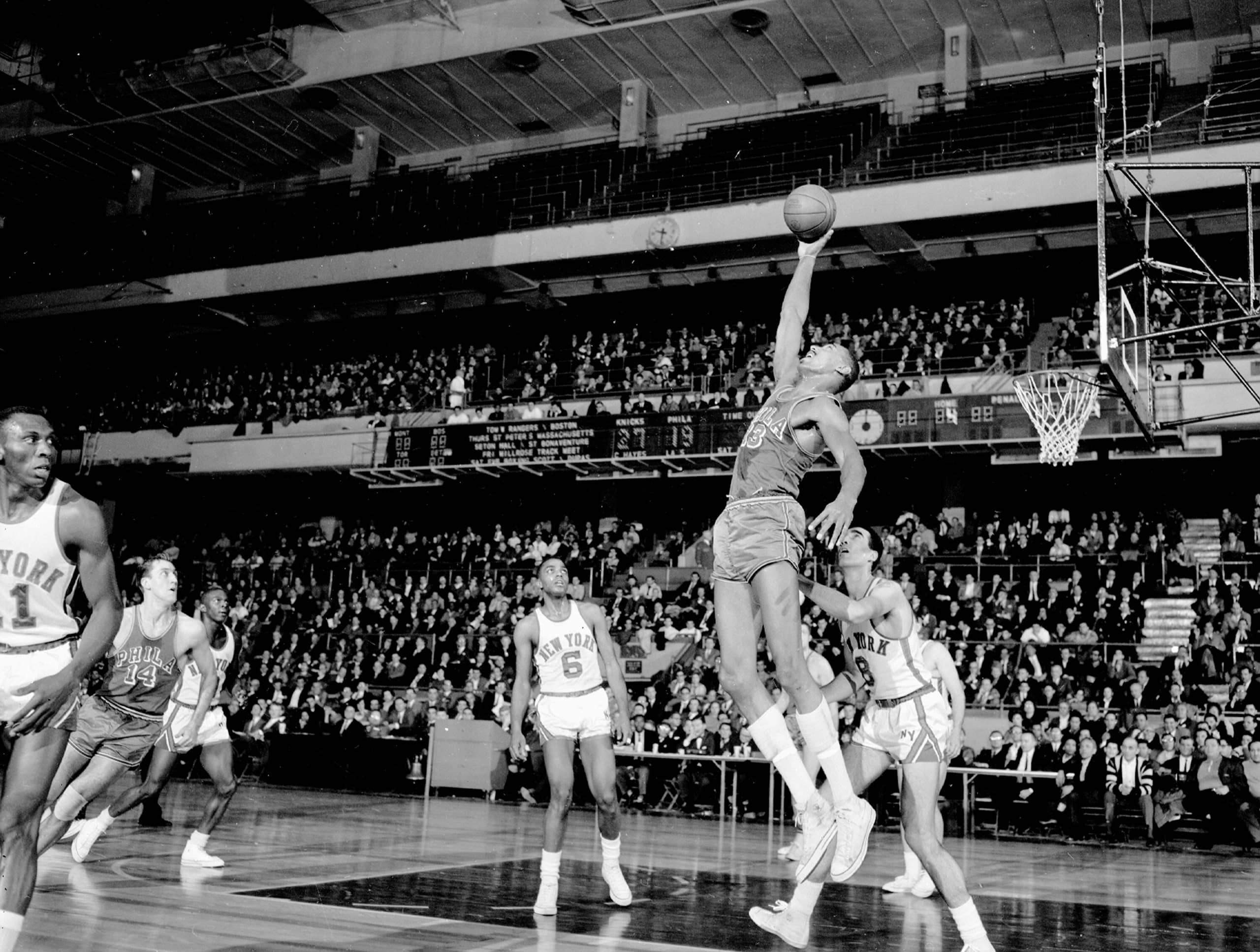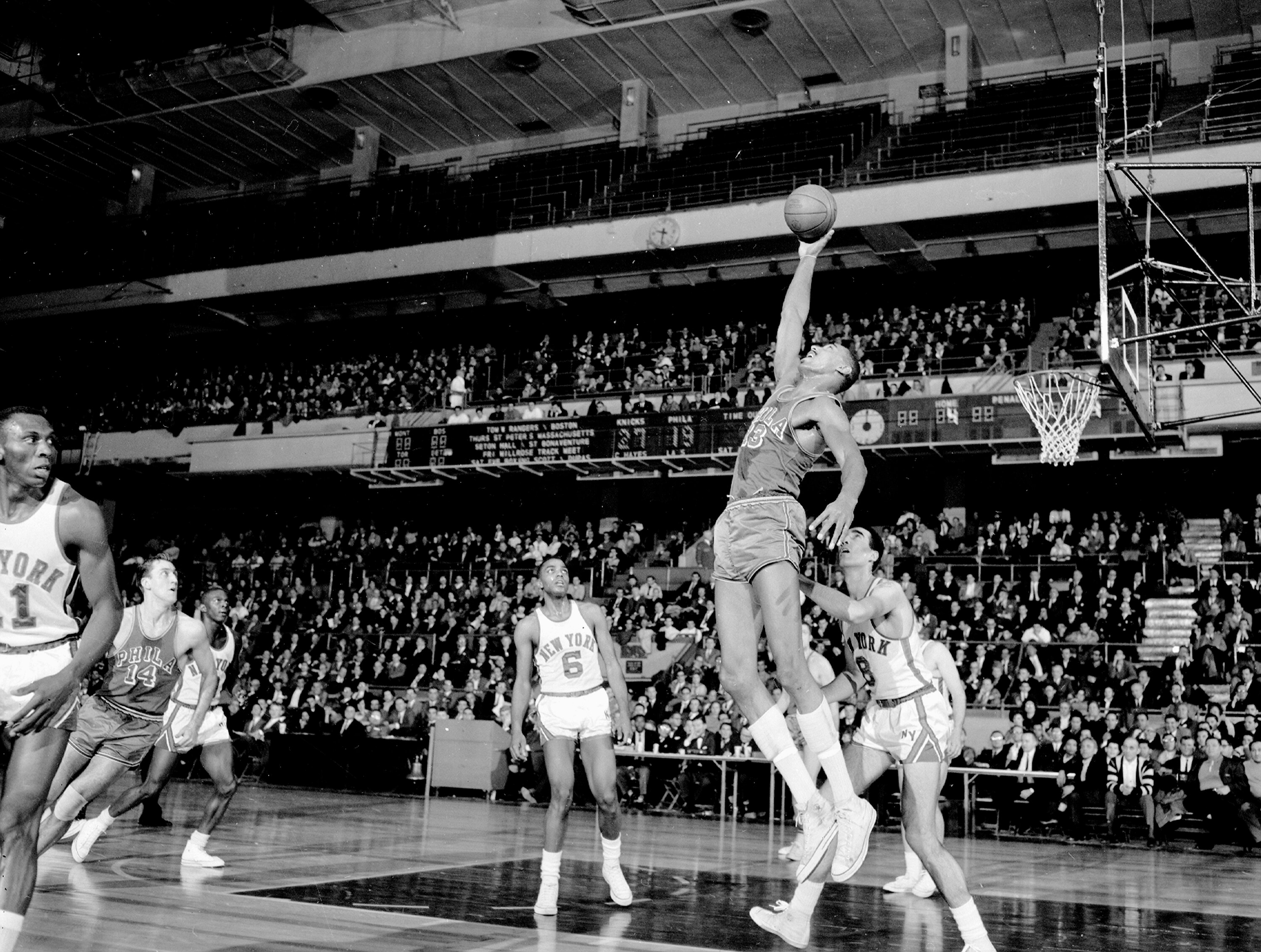NBA
For Years, Wilt Chamberlain Mistakenly Believed the Game Ended After He Scored 100 Points Against the Knicks

Sixty-one years ago today, Wilt Chamberlain did the unthinkable, scoring 100 points in an NBA game against the New York Knicks. The third-year Philadelphia Warriors center also pulled down 25 rebounds in his team’s 169-147 victory.
Chamberlain’s final basket came with less than a minute remaining, and the game was temporarily stopped. Fans stormed the court, the ball was put away and replaced with another. Contrary to what Chamberlain believed, the game resumed, and the teams played out the final 46 seconds.
Wilt Chamberlain’s big night highlighted his biggest season

On March 2, 1962, Wilt Chamberlain had the most memorable game of his 14-year career, but the 4,124 fans in attendance didn’t pay much attention until the fourth quarter. Why would they? High-scoring games for Chamberlain were the norm, especially that season.
After three quarters, Chamberlain had 69 points. Earlier in the season, he had games where he scored 73 and 78 points. In fact, in three previous games before his 100-point outing, he finished with 67, 65, and 61 points.
What many of the fans noticed that night was his free-throw shooting. A 51% shooter from the line for his career, Chamberlain stunned the crowd that night by making 28 of 32 foul shots. Chamberlain set nine records in the game on March 2, 1962.
Records were the norm for Chamberlain. The numbers the 7-foot-1 center put up that season are astounding. For the third straight year, Chamberlain led the NBA in scoring, rebounding, and minutes played. He finished the 1961-62 season averaging 50.4 points, 25.7 rebounds, and 48.5 minutes.
While the 50.4 point-per-game average is incomprehensible, his 48.5-minute-per-game average is more impressive. NBA games are only 48 minutes long. He missed just 8:33 of the season, that coming when he was slapped with multiple technical fouls that resulted in an automatic ejection. He never fouled out of a game. In fact, he never fouled out in his 1,045 games. Seven of his games that year went into overtime, resulting in the added half-minute of his average.
Perhaps the biggest travesty that season was Chamberlain not winning MVP. He was named the league’s MVP four times in his career, but Boston Celtics center Bill Russell claimed the award that year.
Chamberlain mistakenly believed the game ended after the fans stormed the court
After Chamberlain’s milestone basket that gave him 100 points for the game with 46 ticks left, there was a temporary stoppage of play. They needed to clear the court after fans ran onto it. They also gave the ball to Warriors equipment manager Jeff Millman, who put it in a duffel bag in Chamberlain’s locker. The teams used a different ball for the remaining 46 seconds.
In those final 46 seconds, Chamberlain played. He was on the court, although he wasn’t involved. According to Robert Cherry’s biography, Wilt: Larger than Life, Chamberlain stood at center court as the time wound down.
According to Cherry, many people believed the game never resumed after all the commotion on the floor. Chamberlain was one of them. In several interviews, Chamberlain said the game ended with 46 seconds on the clock.
“Wilt sat in my office in 1990, and I played part of the radio cast of the 100-point game for him,” said Todd Caso, a producer for NBA Entertainment, per Cherry.
“He had been telling people for decades that it was the only game in NBA history that was never completed. (Chamberlain) and I sat there, and he listened to the remaining 46 seconds of the game. He was incredulous that it actually happened.
“He turned to me and said, ‘I don’t remember a single thing about this.’ He had been full of the moment and himself, which is understandable, because it is just about the greatest feat in the history of sports.
“People have told me that after he made the 100th point, and once the crowd was cleared from the floor and the game resumed, he stood at center court. He didn’t follow the ball either way. He didn’t want to make 101 or 102 points.”











